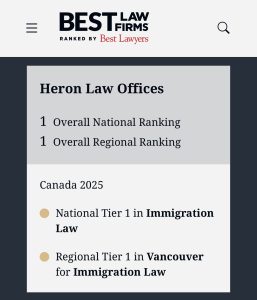In this post, I am going to briefly delve into the Federal Court case of Munzhurov v. Canada (Citizenship and Immigration), 2023 FC 657 (CanLII), <https://canlii.ca/t/jx64k> with the hopes of extracting a few key paragraphs that I think have broader implications for many of today’s judicial review (particularly Chinook decisions).
Munzhurov is a Krygyzstan national and Canadian international student, who like many in Canada was unable to meet the requirements for a Post-Graduate Work Permit (PGWP) due to a having studied part-time in more than the final semester.
The only reasons provided in the GCMS notes with respect to the TRP beyond the PGWP refusal letter (it was a PGWP + WP in alternative application) was:
As per A24 (a), a TRP may be issued to individuals who have not complied with the act (IRPA) and
yet may have compelling reasons to be issued a TRP. It is the client’s responsibility of satisfying
an officer that the applicant is in a unique circumstance with compelling reasons to overcome the
inadmissibility. I have considered the application for a temporary resident permit, and all
submissions in their entirety, and I am not of the opinion that a TRP is justified in this
circumstance. Application refused.
On the accompanying TRP refusal it states:
Client applied for TRP and WP together. Client’s TRP has been refused. Client is not eligible
for a WP from within Canada under R203 to R208.
I do not want to focus too much of my attention on the overall decision, but to highlight the decision of the Honourable Mr. Justice Régimbald who rendered a few foundational paragraphs I feel. Justice Régimbald, a newer appointee to the Court, is another judge (similar to Justice Little and others) who comes from a very academic and administrative law background – having authored and lectured significantly in the area. I think his decisions will be very important to track for this reason.
For me, it is paragraphs 21 to 24. Justice Régimbald writes:
[21] While it was open for the Officer to determine whether the Applicant’s needs and circumstances justified the issuance of a TRP, the Officer had to conduct a proper assessment of the Applicant’s submissions and evidence, which the Court cannot see in this case. Unfortunately, the Officer only offered boilerplate reasons that are not intelligible and that do not allow the Court to assess whether the proper criteria were applied (Abou Loh v Canada (Citizenship and Immigration), 2019 FC 1084 [Abou Loh] at para 40). The reasons, as well as the record, do not allow the Court to connect the dots, nor satisfy the Court that the reasoning “adds up,” as they provide no insight into the Officer’s reasoning process (Komolafe v Canada (Citizenship and Immigration), 2013 FC 431; Seyedsalehi v Canada (Citizenship and Immigration), 2022 FC 1250 [Seyedsalehi] at para 11; Donnellan v Canada (Citizenship and Immigration), 2020 FC 227 [Donnellan] at paras 8-10). [emphasis added]
Especially if we consider decisions rendered by Chinook’s decision-maker module, how many times do we get pure template decisions that are boilerplate and not intelligible. Especially decisions around the purpose of visit which are part of the refusal buckets they are pre-created. I do not see dots on many decisions, reasons that add, or insight into reasoning. And again, as this decision was treated as a PGWP/TRP, I would suggest it is not far removed from other temporary residents such as students, and visitor visa applicants – including those outside Canada.
[22] An officer cannot simply state “objective determinations” as this does not allow a reviewing Court to understand how they “interpreted the evidence to arrive at [the] decision” (Ekpenyong v Canada (Immigration, Refugees and Citizenship), 2019 FC 1245 at paras 21-24, 31-34). In this case, on the issue of section 24 of the IRPA and the issuance of the TRP, the Officer only stated that he had “considered the application [and was] not of the opinion that a TRP [was] justified in this circumstance.” Those reasons do not allow the Court to assess whether the Officer reviewed the Applicant’s submissions and if he conducted a true analysis or if he simply “used boilerplate language” without providing clear reasons (Abou Loh at para 40). The Officer fails to explain how the Applicant’s representations, balanced with the objective of section 24 of the IRPA, support his conclusion to deny the TRP.
[23] While reasons can be brief, they must be clear, precise, and intelligible, and refer to the applicants’ submissions and supporting documentation (Canada (Citizenship and Immigration) v Jeizan, 2010 FC 323 at para 17). As noted recently by my colleague Justice McHaffie, “[e]ven where the obligation to give reasons is minimal, the Court cannot be left to speculate as to the reasons for a decision, or attempt to fill in those reasons on behalf of a decision-maker where they are not clear from the decision read in light of the record” (Afuah v Canada (Citizenship and Immigration), 2021 FC 596 at para 17; Seyedsalehi at para 13).
[24] The Decision therefore “lacks the requisite justification, intelligibility and transparency to avoid judicial interference” and “is an example of an administrative decision lacking a rational chain of analysis that otherwise could permit the Court to connect the dots or satisfy itself that the reasoning ‘adds up’” (Seyedsalehi at paras 6, 11; see also Donnellan at paras 2, 3, 7, 8).
I would not just copy and paste these paragraphs, and of course each case has to be nuanced – especially where decisions do bring a little bit of factual analysis. However, rather than challenge the system (and even possibly the creation or implementation behind Chinook or pro forma refusal/GCMS notes as a policy tool), most of the energy can be shifted into the impacts this has on the Federal Court’s ability to even perform their analysis and ‘connect the dots.’ It also gives us a further basis to challenge when those dots are attempted to be reversed engineered on to the page (as I wrote in this blog post: here).
This is such a crucial decision that should be taken into account by Applicants when targeting boilerplate reasons.




